Tomorrow, January 12th 2012 ICANN will open the application window for new TLDs.
What on earth does that mean?
Companies, organisations, groups and even cities will be applying to run their own domain name extension.
What is a domain name extension?
It’s the bit on the right of the dot (“.”). For example, blacknight.com is our main domain. In our case we are using a .com, which is run by a US company called Verisign.
What new domain name extensions are we going to see?
At the moment nobody knows for sure. A number of organisations have been very open about their plans to apply for particular strings, so we know there are applicants for:
- .shop (multiple applicants)
- .web (multiple applicants)
- .nyc (multiple applicants?)
- .paris
- .scot
- .irish
- .london
- .music (multiple applicants)
- .wine
- .canon
And many more besides, but nobody knows at the moment who will actually get to launch a new domain extension.
Why not?
ICANN’s launch program includes an application process that vets applications very carefully, so some applications will probably fail. Others might get past the initial stages of the application process but fail for another reason.
Can I apply to run my own domain extension?
Short answer: Yes, but it’s going to cost you around $1 million US and you’ll need to be a limited company or equivalent.
Longer answer: Getting your own domain extension is not the same as simply registering a domain via a registrar. With your own domain name extension you would have a lot of freedom, but you also have a lot of responsibility as well. While it might be suited to an organisation, group, city or big company, it probably isn’t something that most individuals would consider doing, unless they were multi-millionaires 🙂
Does my brand need to apply for our own TLD? We’re worried that someone will “squat” it.
No. The newGTLD program has a lot of trademark and IP protection mechanisms builtin, so you can object to an application before it is fully processed
When will we know which extensions have been applied for?
Early in May 2012 ICANN will be publishing the full list of applications
What happens if more than one entity applies for the same string?
They could end up in an auction.
Can there be shorter domain extensions with this expansion?
The minimum is 3 characters. All the two characters are reserved for country codes. The same rule applies to internationalised domain names.
So could I have email@extension?
No. You still need a domain / string before the extension eg. michele@neylon.nyc would be valid, but michele@nyc wouldn’t be. The extension (TLD) is the bit on the right of the dot – you still need to specify something on the left.
When will I be able to register a .irish or .shop domain?
When the registry operator has been chosen and registrars (such as ourselves) begin offering the new extension(s) for sale. This is unlikely to happen until 2013 at the earliest.
We will post more on the subject as the facts become known.
Can I pre-register a .irish or a .shop domain now?
No and we would strongly discourage anyone from even trying to pre-register domains now.
Will I need to register my company name or trademark in all these new domain extensions?
No. There are going to be a much larger number of domain extensions that will probably cater for specific industries, professions, languages and locations. There wouldn’t be much point in registering your brand or company name in all of them.
So which domains should we register?
If you sell wine and there is a .wine, then that would be an obvious choice. Got an office in New York City? Then .nyc would make a lot of sense.
In short you should see these new extensions as being a marketing opportunity.
How much will it cost to register my own domain with these new extensions? ie. mycompany.shop or mybusiness.paris
Pricing will be determined by each registry operator, so some extensions might be available (retail) for not much more than a .com domain name now, while other domains will probably be sold as “premium” extensions.
Will these new domain extensions replace existing .com or .co.uk domain names?
No. This is an expansion. It is not a replacement.
If you have any other questions / queries, or if something is unclear please let us know via the comments below.

14 Comments
Comments are closed.

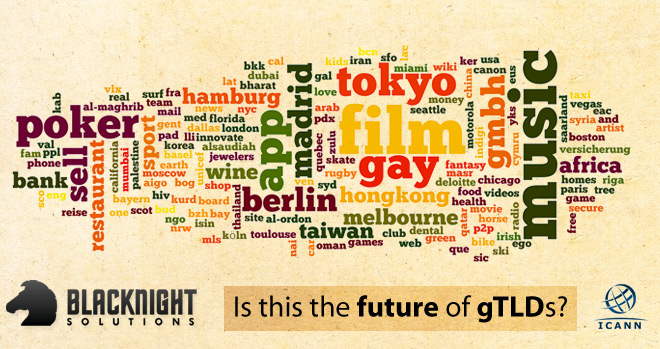
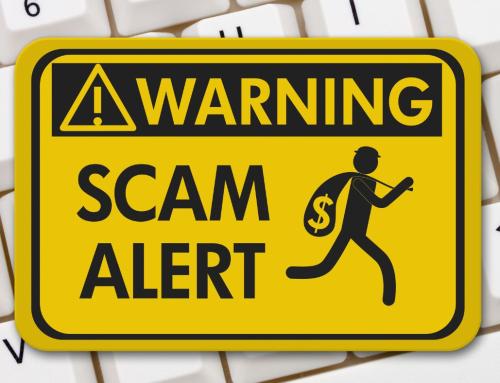
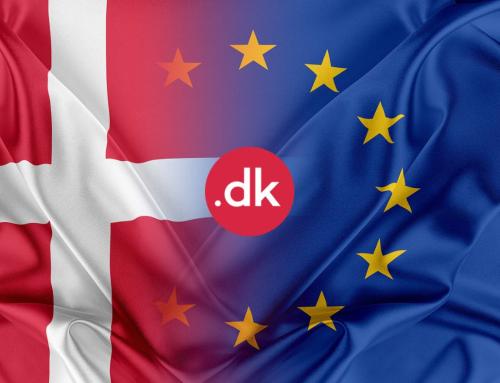
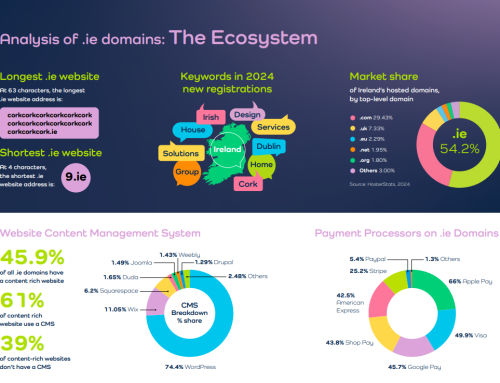

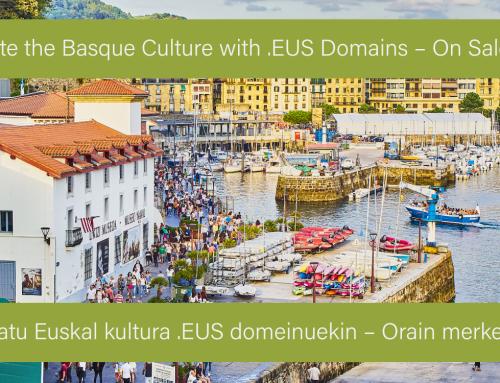
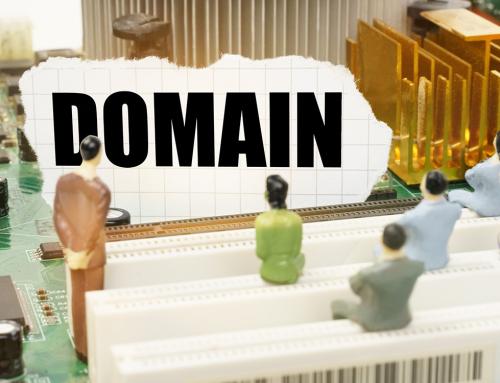
Another one to add to your list .data , Stephen Wolfram (of Wolfram|Alpha and Mathematica fame) wants to register the dot data TLD . You can read about it here http://blog.stephenwolfram.com/2012/01/a-data-top-level-internet-domain/
Personally I’m not a fan of them, as it just seems weird to to type D600.canon into a browser, but maybe that’s me.
Do many people use / visit any of these on a daily basis ? .COOP , .TRAVEL or MUSEUM. ,btw. see http://corkbutter.museum/ for an Irish example.
Paul
Paul
That’s the challenge. A lot of the new TLDs will probably not be successful at all and could fall flat on their faces. However success isn’t just a case of “volume”. In the case of .cat, for example, they don’t have a particularly large number of registrations compared to .com, but they are serving their community well.
Michele
.thick
I do not completely agree with this :
“Does my brand need to apply for our own TLD? We’re worried that someone will “squat” it.
No. The newGTLD program has a lot of trademark and IP protection mechanisms builtin, so you can object to an application before it is fully processed”
It depends which trademark is concerned.
If the trademark correspond to a usual term in another field of activity, the risk really exist.
Let’s imagine that Apple producers of the world apply for a .APPLE and not the Apple Company that we all know. How would they prove that the Apple producers are not legitimate to ask for this string ?
What about the french companies like FREE, ORANGE or ALTEN (which as a meaning in German) ?
Nobody knows exactly who will ask for a string and on which ground.
So maybe it is smart to at least try to be in the list that would be published in May and then decide to continue or not.
Eugénie
You should have declared that you are an “interested party” 🙂
Yes – you are right, but only to a point.
There is a challenge process for new TLDs and if you have no intention of ever actually using a domain extension, why would you feel that you need to get one just for “protection”, when you probably don’t need it at all?
Of course if your brand is a generic keyword then you might need to give it more serious thought, but I think a lot of new TLD consultants have done the new TLD project more harm than good by focussing so much on the .brand as if it was a necessity for companies when it probably isn’t
Thanks for your comment
Michele
Being from a ccTLD that might get into the program my disclaimer is semi-interested party…
.brand is a very nice marketing tool, but no one needs every tool to do a good job. Comparing which companies do what on broadcast, events, web site, social network #1, social network #2 and so forth, there are clusters of companies using each combination of tools. I really hope that the community finds a way to a .brand type of application, simpler and restricted, so the second round could see more brands doing the job themselves. I’ve heard the “system can be gamed” arguments in Dakar but I think the community has enough “gamers” to design how to prevent gaming…
Rubens
I’ve always thought that “categorisation” was viable ie. non-contentious applications such as .paris, which is backed by the local government, should have been able to go through without having to “jump through hoops”.
Maybe the next iteration will see a relaxation, but I wouldn’t hold my breath.
Thanks for your comment
Michele
I agree with you.
A real strategy has to be determine even if the decision to apply for a new gTLD is based on fear (most of the decisions are based on this feeling even if nobody would admit it to my opinion).
Concerning established trademarks applying for a .BRAND I agree that this is not always a need to apply but merely an opportunity to develop different services, to change the way they communicate online…
The case of the generic brand is really interesting as appart from the opportunities this is clearly a way to consolidate a trademark worldwide.
Being in the list that would be published in May should be seriously considered by any company which can afford it and for whom the e-reputation is important.
And this does not mean that everybody should apply but there is a really need to give a clear vision of the opportunities.
Applying or not could have a real impact on the branding and people should be aware of that.
Eugénie
Will Blacknight be submitting any proposals??
Its a good concept, but in the wrong hands could do a lot of damage to a .Brand.
Obviously, this could be looked at as another way of taking money from the huge corporate companies which will fork out to protect their branding. Governments will jump on the band wagon because its taxpayers Money. I don’t see any big need for a .irish or .ireland when .ie is already there. Think its good for registrants of domains for sure, but for me as a domain owner not so sure!
Big questions here is do we really need more extensions?
Surely we are not short on domains??
Will it also devalue other existing domains? for instance would unlock.irish devalue an existing unlock.ie domain? (If it actually had a value) 🙁
Eoin
Blacknight will not be applying for .blacknight, though we will be involved at some level with several organisations that are applying for domain extensions. I’ve personally been talking to both prospective applicants and existing domain registries about the challenges that they’ll all face over the last few months. (See previous posts on this site for slides etc)
As I mentioned in this post brand owners do not need to spend money unless they really want to, or have a brand name that is likely to be attractive for other reasons.
I don’t understand your comment about governments. Could you please explain?
The discussion about whether more domain extensions are needed or not has been going on for years. A better question is, why does it matter? Why should you care? Nobody is forcing you to use a different domain name extension, but if your name was “John Murphy” you couldn’t register your name or most of its derivatives easily. Giving consumers and business the choice to register a domain under an extension of their choosing can hardly be seen as a bad thing.
As I already said, this is an expansion. I can’t see how it could “devalue” other domain extensions, unless of course the domain registry had archaic and unfriendly policies.
Thanks for your comments
Michele
Re: Governement Comments..
I would imagine that the only Organisation that would want .ireland or .irish would be a Government Body.
For instance if I had a few million lying about in an account, I put a bid in to have ownership of a .ireland , I would imagine that the Gov. would want to step in to make sure its not in the wrong hands/protected.
Just as a number crunching exercise, How many .ie domains roughly is there registered??
How many would then register a .ireland with the same domain name. ie unlock.ie and unlock.ireland.
I’d imagine a .ireland ext would be great to have ownership of with regards to reselling domains..
If people are paying €20 a year for regsitering a .ireland domain.. It wouldn’t be long before owning this ext. would make sense surely??
Now I could be taking a completely wrong approach to how this registrant system works, but you can probably clarify that for me anyway.
Understanding there’s a lot of T&C’s and costs involved in registering domains and its not as simple as getting 20 quid from the buyer of a domain for a .ireland..
“Rule No.1 : I am always Right
Rule No.2 : When I am wrong , please look at Rule No.1”
Eoin
.ireland is not permitted under the rules.
I don’t know why you think only a government body would be interested in running a .irish or a .ireland.
A lot of country code domains are not run by government, in fact I’d have difficulty thinking of any offhand.
Current statistics for .ie registrations are here:
https://www.weare.ie/index.php/mnustats/mnudomcount
Currently there are under 175k domains registered.
Running a domain extension can be an expensive proposition, though the costs vary depending on how you are marketing and using it.
For example, if a brand wanted to run a .brand extension their costs would be quite low, as they wouldn’t have to market it to anyone ie. no advertising etc.,
A cultural-linguistic group, such as .bzh or .eus, would have slightly higher marketing costs, but their target market is quite narrow – namely Brittany and the Basque country respectively.
However a more “open” and commercially drive domain extension is going to be vying for attention in a global market.
The maths are pretty simple at the most basic level ie. spend less than you bring in, but if you as an end user are paying 20USD for a domain (and I use USD, as all the figures from ICANN are in dollars) per year, then the registrar has to get a cut of that, ICANN takes its slice, the backend operator takes its share etc., etc.,
I might do a followup post on some of the costs and challenges associated with it if people are interested.
Thanks for your comment.
Michele
I think you just hit the nail on the head their Michele, You can’t apply for a .ireland so that throws my argument staright out the window!!
Be interesting to do a case study with some form of figures to see what potential investors would really be looking at with regards to making it a viable commercial purchase…
Just a numbers game really… and then having double the amount of cash you first taught you needed to back it up!!
Great Blogging Michele , always learning a little snippit at a time from the site!!!
But generally I still get it wrong!!!
Eoin
If you have a look at some of the slide decks I shared on SlideShare I covered some of the challenges facing both new TLD operators and existing ccTLDs:
http://www.slideshare.net/blacknightsolutions/
I’ll see about throwing some figures together, though I know that some of the people who are more active in this space have probably done deeper analysis than I could 🙂
Thanks for your comments
Michele